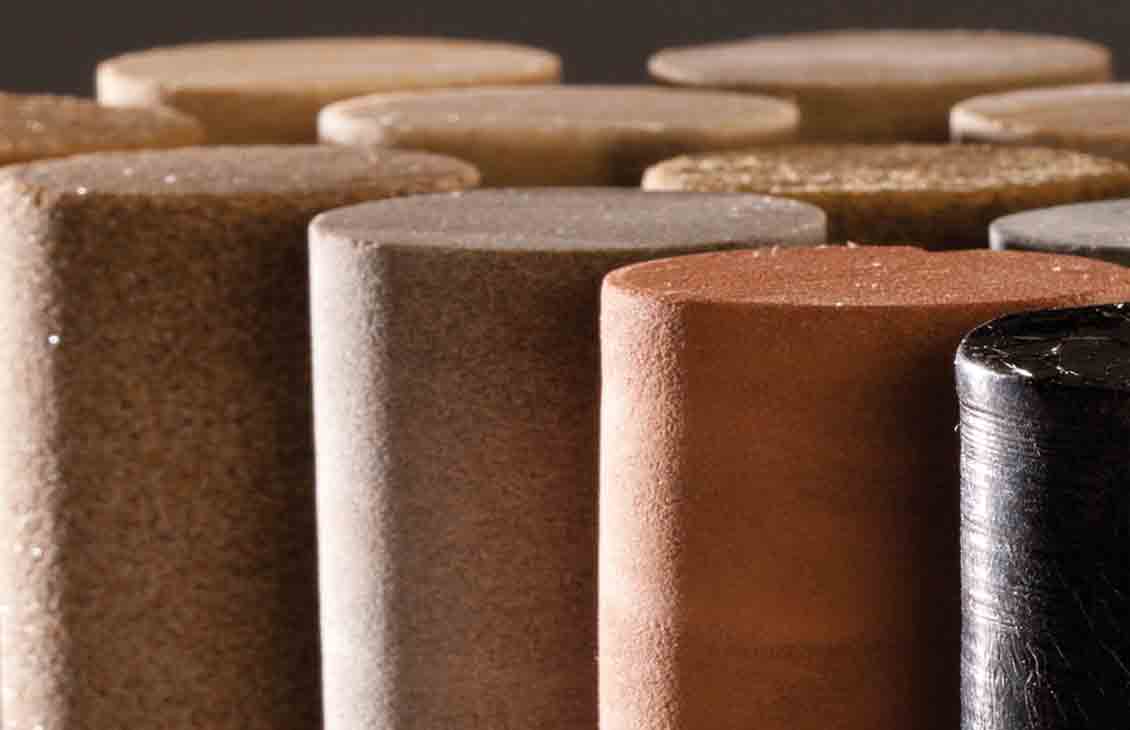JIS M 0302 Gas Permeability Measurement in Reservoir Rocks
The measurement of gas permeability in reservoir rocks is a critical aspect of oil and gas exploration. The JIS M 0302 standard outlines the methodology for determining the rate at which gases can flow through porous rock formations under specific conditions. This parameter plays a crucial role in predicting how effectively hydrocarbons will be extracted from subsurface reservoirs, making it indispensable for optimizing production processes.
According to JIS M 0302, gas permeability is defined as the ease with which gases can move through a given volume of rock. The measurement involves subjecting the sample to controlled pressure and temperature conditions while measuring the flow rate of the gas passing through it. This process helps in understanding the intrinsic properties of the reservoir rocks, such as porosity, pore size distribution, and connectivity.
The standard specifies detailed procedures for preparing and testing the specimens using a core holder connected to a flow cell. The sample is initially conditioned under specified temperature and pressure conditions before being placed into the flow cell. A gas mixture consisting primarily of nitrogen or helium is then introduced at one end of the specimen, while the other end is sealed off. The rate at which this gas passes through the rock is measured over a defined period.
The accuracy of these measurements directly impacts the reliability of reservoir models used during drilling operations and production planning stages. By providing precise data on gas permeability, JIS M 0302 ensures that decisions made by quality managers and compliance officers are based on robust scientific evidence rather than assumptions or estimates.
Understanding the nuances involved in performing this test according to JIS M 0302 is essential for R&D engineers working within the oil & gas sector. Properly conducted tests ensure accurate predictions about how different reservoir rocks will behave under various drilling scenarios, helping to minimize risks associated with unexpected outcomes during actual field operations.
For procurement professionals involved in selecting suppliers of core analysis services, familiarity with this standard provides assurance that vendors adhere to industry best practices when conducting such tests. Ensuring compliance with JIS M 0302 helps maintain consistent quality across all phases of exploration and production activities.
Why It Matters
The significance of accurately measuring gas permeability cannot be overstated, especially when considering its direct impact on both economic efficiency and environmental sustainability. Accurate measurements allow companies to optimize their extraction methods, thereby reducing operational costs while maximizing resource recovery rates.
Gas permeability influences several key factors affecting the economics of oil and gas projects:
- Reservoir management: By identifying areas with higher permeability, operators can target these regions first, increasing initial production rates and overall profitability.
- Pipeline design: Understanding the flow characteristics allows for more efficient pipeline designs that cater to varying pressure differentials throughout the network.
- Environmental considerations: Lowering operational pressures reduces emissions, contributing positively towards environmental goals set forth by regulatory bodies globally.
In addition to economic benefits, precise gas permeability measurements also contribute significantly to enhancing safety standards within the industry. Knowing exactly how fluids behave in various parts of a reservoir helps prevent accidents caused by unexpected flow patterns or pressure surges during drilling operations.
The reliability provided by adherence to JIS M 0302 ensures that all stakeholders involved in oil and gas projects receive consistent, accurate data. This consistency fosters trust among partners, investors, regulators, and local communities, ultimately leading to more successful ventures.
Industry Applications
The application of JIS M 0302 extends beyond mere laboratory experiments; it is integral to numerous stages of an oil & gas project's lifecycle. From initial exploration through drilling, production, and eventually decommissioning, this standard supports decision-making at every step.
During the exploratory phase, core samples taken from potential reservoirs undergo JIS M 0302 testing early on. These results inform geologists about which formations show promise for containing commercially viable quantities of hydrocarbons. Armed with this information, drilling teams can then focus efforts on those most likely to yield positive returns.
Once production begins, continuous monitoring using JIS M 0302 helps maintain optimal operational conditions. Changes in permeability over time due to natural processes or human activities could indicate issues that need addressing promptly to avoid costly downtime or environmental damage.
At the end of a project's lifecycle, understanding how permeability has changed allows for responsible decommissioning plans. Ensuring minimal disruption to surrounding ecosystems is crucial given increasing public awareness regarding sustainable practices within industries like oil & gas.
Competitive Advantage and Market Impact
Adhering strictly to JIS M 0302 offers significant competitive advantages in the highly competitive global market for reservoir characterization services. Companies that consistently meet or exceed these standards gain credibility among clients, partners, and regulatory agencies alike.
By demonstrating proficiency with this international standard, firms signal their commitment to excellence in every aspect of their operations. This reputation attracts more business opportunities from reputable clients who prefer working with suppliers known for delivering high-quality services.
The accuracy provided by JIS M 0302 ensures that all parties involved have a shared understanding of what constitutes acceptable performance levels. This common ground minimizes misunderstandings and disputes, fostering long-term relationships built on mutual respect and trust.
Moreover, maintaining compliance with this standard helps protect against potential legal challenges related to non-compliance issues. As regulations become increasingly stringent worldwide, being able to point to adherence to recognized standards like JIS M 0302 can serve as a defense mechanism should any allegations arise.





